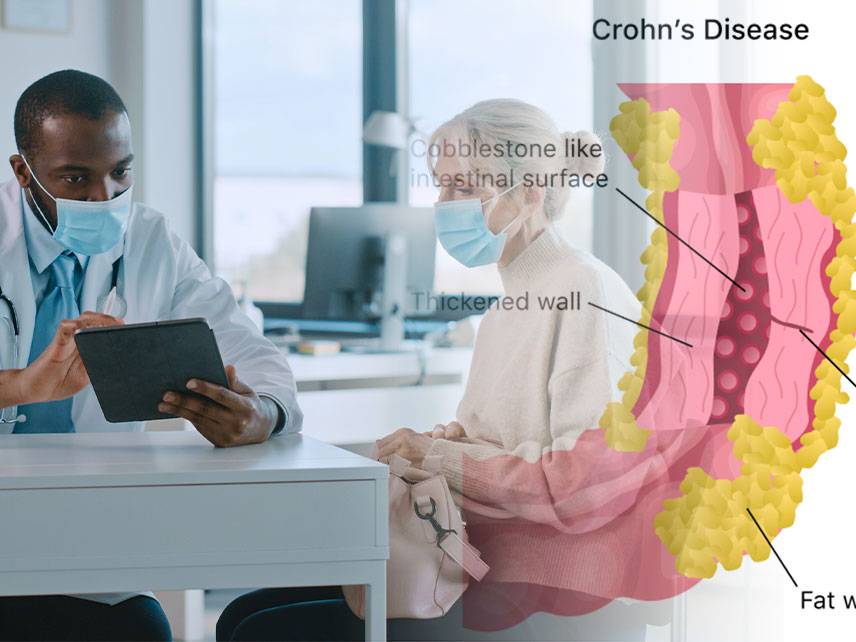Crohn’s disease is an inflammatory bowel disease that causes inflammation of the digestive tract. It can affect any part of the gastrointestinal tract, from the mouth to the anus. The most common areas affected are the last part of the small intestine (the ileum) and/or the large intestine (the colon).
Symptoms and Signs
The symptoms of Crohn's disease can vary depending on the location and severity of the inflammation. Common symptoms include abdominal pain, diarrhea, rectal bleeding, weight loss, and fever. Other symptoms can include lack of appetite, fatigue, joint pain, mouth sores, and skin rash.
Causes
The exact cause of Crohn's disease is not known. It is thought to be caused by a combination of genetic, environmental, and immune system factors.
Risk Factors
Factors that may increase the risk of developing Crohn's disease include having a family history of the condition, smoking, and a diet low in fiber.
Prevention
There is no known way to prevent Crohn's disease. However, eating a healthy diet and avoiding smoking may help reduce the risk.
Diagnosis
Crohn's disease is usually diagnosed through a physical exam, blood tests, and imaging tests such as a CT scan or MRI. A biopsy may also be done to confirm the diagnosis.
Treatment
Treatment for Crohn's disease aims to reduce inflammation and relieve symptoms. This may include medications such as corticosteroids, immunosuppressants, and biologic therapies. Surgery may be recommended in some cases.
Coping and Support
Living with Crohn's disease can be difficult. It is important to find support from family, friends, and healthcare professionals. There are also several online support groups and organizations dedicated to helping people with Crohn's disease.
Complications
Complications of Crohn's disease can include malnutrition, fistulas, abscesses, and bowel obstruction.
Living with Crohn's Disease
Managing Crohn's disease can be challenging, but it is possible to lead a full and active life. Eating a healthy diet and exercising regularly can help reduce symptoms and prevent flare-ups. It is also important to take any prescribed medications as directed. With the right treatment and lifestyle modifications, people with Crohn's disease can live a long and healthy life.





